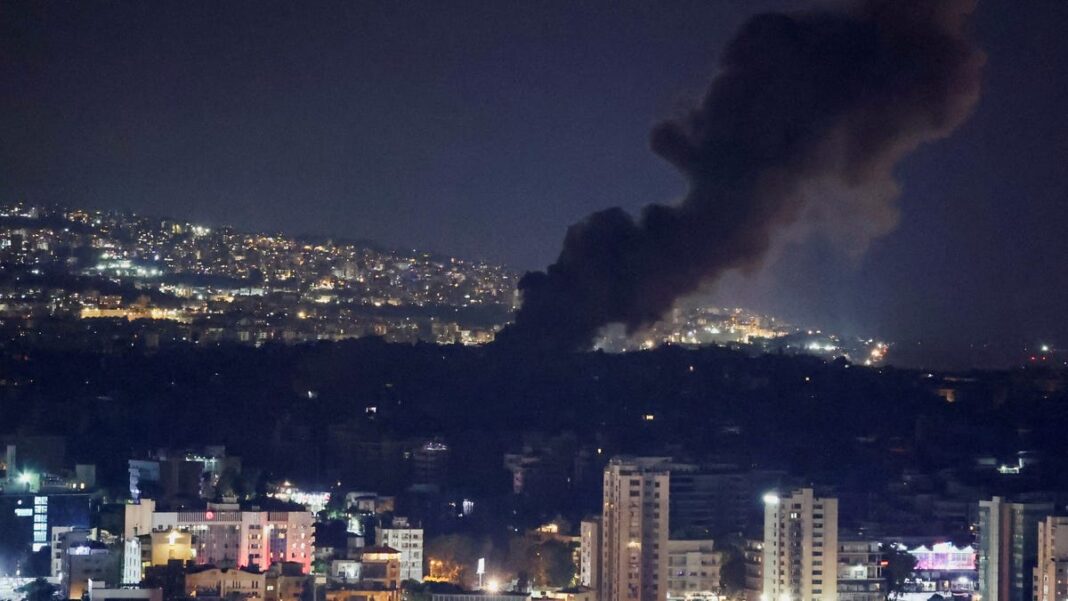White House Reports Iran Plans Imminent Missile Strike on Israel
This article has been updated with new details.
WASHINGTON — A high-ranking official from the White House stated that Iran is ready to carry out a “imminent” missile strike against Israel.
The official, who spoke on condition of anonymity, said the Pentagon is actively assisting Israel in its efforts to prepare for potential defense against this strike. They warned that a direct assault on Israel would have “serious repercussions for Iran.”
This warning prompted the U.S. Embassy in Jerusalem to tell its staff and their families to “shelter in place until further notice.”
The alert about a possible attack comes after Israel has conducted significant airstrikes and covert operations targeting the Hezbollah militant group, which is backed by Iran, in Lebanon.
Earlier on Tuesday, Israeli forces entered Lebanon for the first time since 2006, claiming they were executing a “localized and targeted” operation against Hezbollah’s command centers and weapons caches.
Iran has been threatening retaliatory actions against Israel since August, following the assassination of Hamas political leader Ismail Haniyeh in Tehran.
Israeli military spokesperson Rear Adm. Daniel Hagari reported that the U.S. has informed Israel about Iran’s intentions, although they have not yet identified any aerial threats from Iran.
He stated that Israel has dealt with Iran’s threats before and is prepared to do so again. Israel’s military is actively monitoring the skies and collaborating with the U.S. to keep a close eye on developments from Iran.
“If Iran attacks Israel, there will be consequences,” he emphasized.
In a message addressed to the public, Israeli Prime Minister Benjamin Netanyahu urged citizens to adhere to military instructions and hinted at stricter restrictions on large gatherings.
Israel Strikes Hezbollah, Over 1,000 Casualties
On September 27, Israel’s airstrike killed long-term Hezbollah leader Hassan Nasrallah.
In the last two weeks, Israel has heavily bombarded Lebanon, resulting in over 1,000 deaths, as reported by Lebanon’s health ministry. The escalation of hostilities between Israel and Hezbollah, the most severe in nearly a year, was sparked by an Israeli operation that disrupted thousands of communication devices across Lebanon.
Back in April, Iran launched a barrage of more than 300 missiles and drones at Israel, almost all of which were intercepted by the U.S. and its allies.
Khamenei Moves to Secure Location After Mourning for Nasrallah
Following the death of his ally Nasrallah, Iran’s Supreme Leader Sayyed Ali Khamenei called for five days of mourning starting September 28 and was moved to a secure location, according to a U.S. official.
Historically, Iran has used periods of mourning for strategic planning, the official noted.
Despite preparations by Israel, the U.S., and allies for a potential ballistic missile strike on Tuesday, the official suggested that Tehran might take a longer time to retaliate, possibly focusing on re-establishing Hezbollah’s leadership before responding.
Since the shock of the October 7 Hamas terror attacks which resulted in the deaths of 1,200 Israelis, Hezbollah has been launching missiles and rockets into Israel.
Hezbollah, which is financially supported by Iran, forms a part of Iran’s “axis of resistance”, a network of groups across the region that Iran backs both financially and with weapons, alongside the Houthis in Yemen and Hamas in Gaza.

